Everybody wants to have a website. Not just to have an image on the Internet but also to make their brand known in every corner of the world. But wait, what is that one thing you need to make your website? The most basic and significant thing has reliable hosting.
While discussing hosting, you will find plenty of options on the Internet. However, nothing as great as UpCloud works as per your expectations. This detailed UpCloud review is all about a deep understanding of the platform.
- What makes UpCloud so good?
- Is it even suitable for you?
- What are the other options to go for if not UpCloud?
Get $25 Free Credits with this Link
Here you will find answers to all your questions. So, read on.
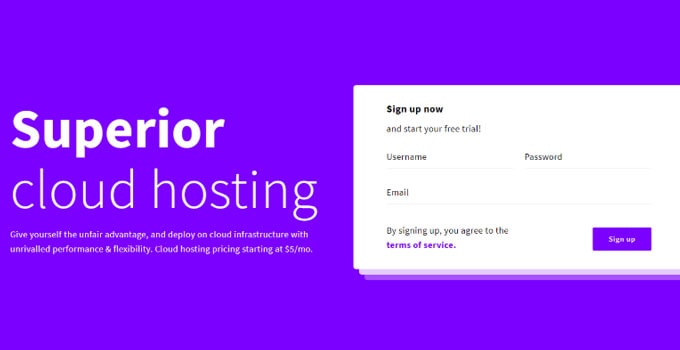
Undoubtedly, UpCloud is one of the best hosting providers you will ever find. You can Google the term ‘best hosting platforms,’ and sure, UpCloud will be the one you will find in the top ranking ones.
UpCloud is a fast server, just like Google Cloud, that works brilliantly in Asia, North America, Europe, and other countries as well. To be specific, there are six countries where you will find its server. Besides full customer satisfaction, 89% precisely, this platform is a good one.
Bottom Line Upfront-
For all the businesses and individuals looking for a hosting platform that is easy to customize and fits perfectly to your needs, UpCloud is the one to go for. It has block storage, cloud servers, and software-defined networking. With its four offices in Europe, Asia, and America, and servers in 6 countries across the globe, it truly stands as one good platform for all its users.
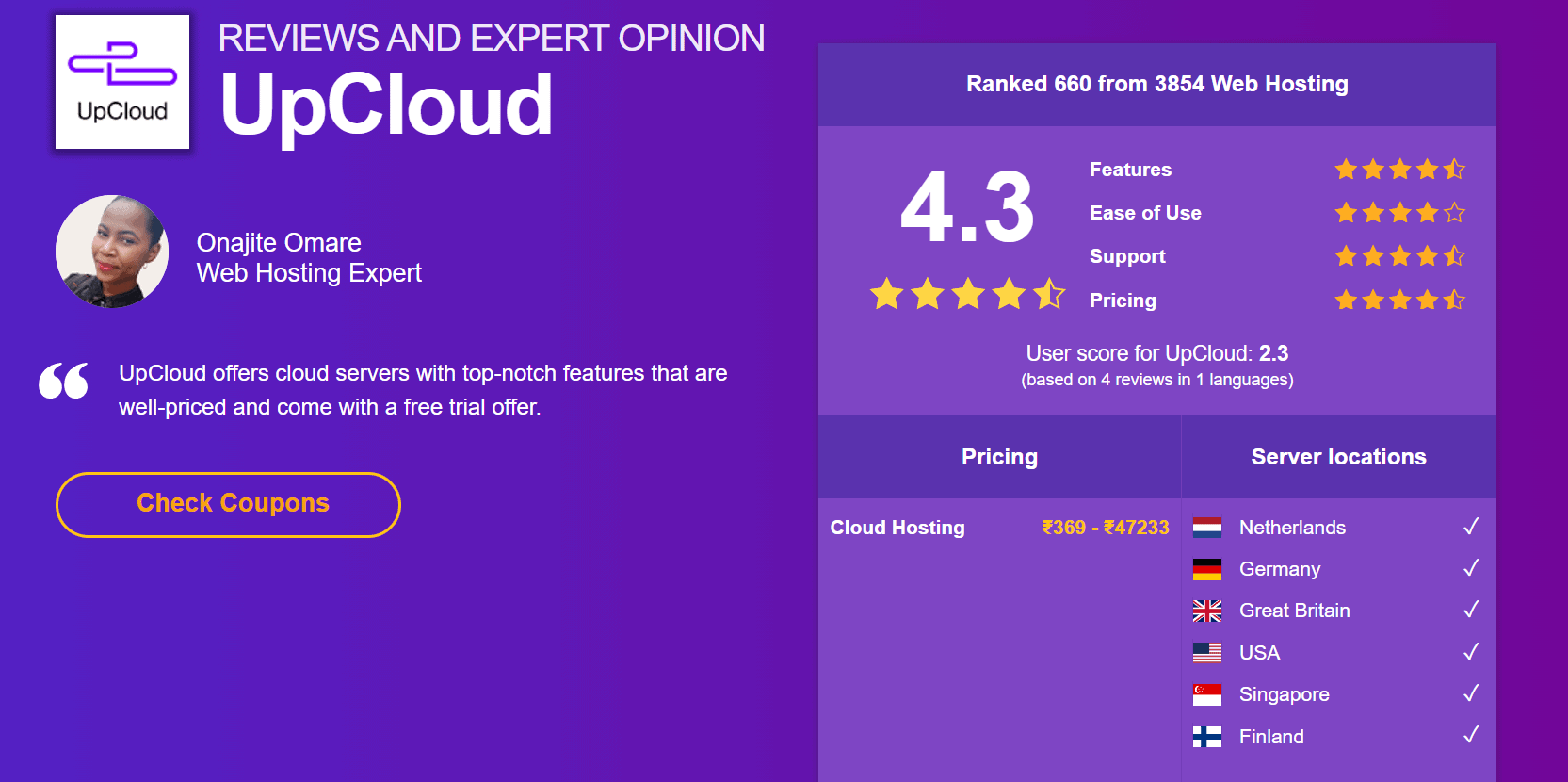
Accompanying top solutions for any business or personal uses, UpCloud is a definite developer-driven company. It’s an absolute top-notch recommended platform used by big companies as well as small startups worldwide.
Get started with UpCloud Today.
What is Cloud Server aka Cloud Hosting?
To begin with, let’s first figure out what exactly cloud hosting is, aka cloud server. You use cloud hosting when you acquire a reserved space for computing to host the data via a service. It can be used for any type of cloud computing, such as solutions, suppliers, or even to provide facilities.
In other words, it is IaaS, or Infrastructure as a Service, model which is used to provide services, be it virtual or distant. Moreover, you can also call it an on-demand supply of resources that you can use without the interruption of any manager.
When we talk about cloud hosting or server, UpCloud has been the top choice for users since the day it came on the market seven years back. This one is driven by the developers and provides an excellent solution for your business or personal requirements. Besides, it is super easy to work with, and its service efficiency will blow your mind away (well, not literally).
About UpCloud ✅
Enough appreciating the tool, let’s understand what exactly UpCloud is. As we know about cloud servers and hosting, UpCloud is a great choice for you. This Helsinki, Finland-based company is cool, fast, and the best in its cloud computing service providers industry. This company was founded by Pihlajamaa back in 2011, and by 2013, it became functional in full form. Since then, it has been pushing itself to be the top one in its market.
Features of UpCloud
To talk about any platform or service provider’s worth, we need to look at its features first. Now, besides its 100% guaranteed uptime or server, which is faster than SSD, there’s a lot more to UpCloud that makes it amazing. Check out what that is.
1. Scales effortlessly and with full flexibility.
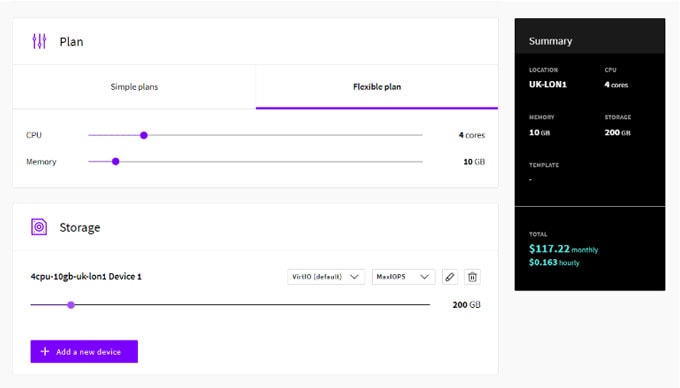
Who doesn’t love pre-setup plans and configurations? UpCloud makes that happen for you with ease. It allows you to use resources like IP address, RAM, Storage, and CPU and configure them separately. The best part about that is you can switch between freely configurable resource-limited and pre-configured plans whenever you feel like it. As a result, you will have higher traffic on your website.
2. Quite compatible with MaxIOPS

UpCloud is really good at using enterprise-level hardware for its cloud servers. Not just it. This actually uses in-house developed software and MaxIOPS storage technology, and, with this, it promises you the top-notch industry performance
3. Simple and strong API
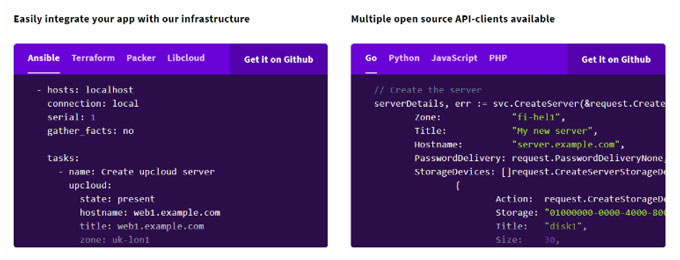
We all want flexibility, especially when it is related to our business. Having straightforward and quite restricted functions are very annoying. Keeping that in mind, UpCloud offers you the automation system and allows you to play with creation, configuration, and all its services as you like. Its API is flexible and gives you all the control of the cloud server.
4. Get the best of floating IPs and private networking
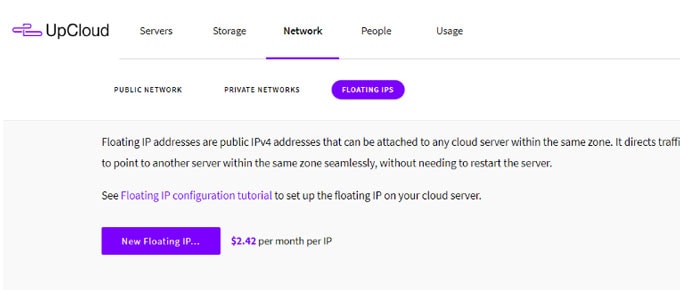
100% private network? It seems something all of us would really appreciate. You would do that too once you know UpCloud offers you that. However, this is interrelated to the data center of the server. What is the best part about that? You can use this private connection to send data from cloud servers without any extra cost.
5. Server tagging and handling group accounts.
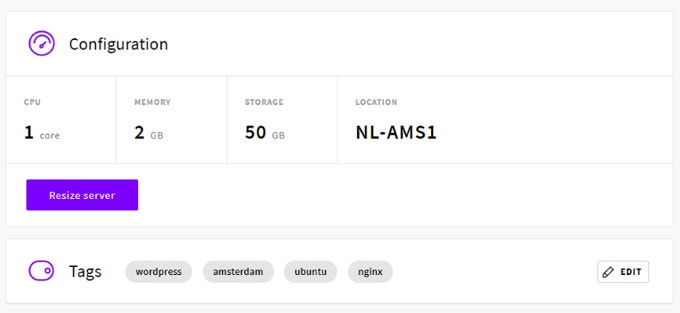
Granular permission control is a feature offered by UpCloud that may be used to grant access to the rest of your team or clients. The entire architecture can be organized, and the servers can have tags added. These tags can also be used to enable or restrict access to the servers for specific groups.
6. Creates backup for Snapshots, Firewall, and server cloning.
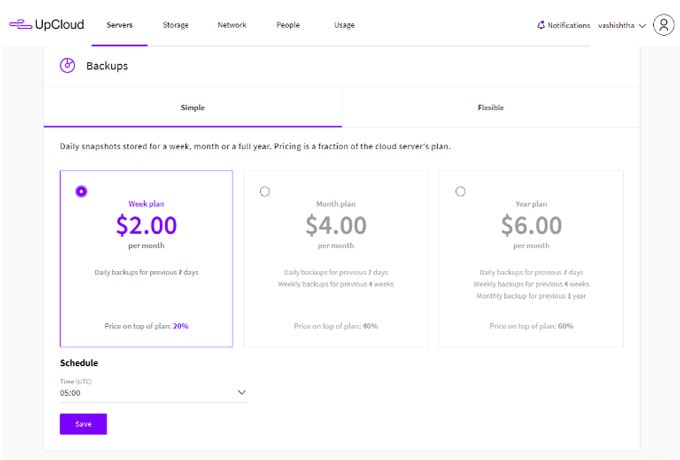
UpCloud is known for its highly flexible firewall that is quite brilliant in enabling you to keep your environment secure. The traffic can be allowed or blocked before it reaches your servers.
While we are on this, UpCloud’s server cloning is something that amazes you. This one allows you to create a staging environment by cloning one of your cloud servers or storage discs. Your deployments can be automated, and the converted cloud servers can be turned into templates.
Not to mention, UpCloud comes with a fantastic backup system that stores all your data whenever you want, be it a planned routine. This function facilitates both speedy backup creation and restoration.
7. Total Uptime SLA that comes with N+1 redundancy
Here comes the N+1 redundancy UpCloud is quite famous for. This one here ensures to eliminate all potential failure spots. What does that mean? This is about the other component automatically replacing the failed one.
As a result, UpCloud guarantees that you won’t experience any data loss due to faulty hardware. This business will guarantee an SLA of 100 percent uptime with a 50x payback for downtime lasting more than 5 minutes. That’s something awe-inspiring.
8. Hosting that goes as you like
Here comes the best part about UpCloud – Hosting. Hosting your web application using Upcloud’s flexible hosting is a terrific idea. In only a few minutes, you can upgrade or downgrade from an existing server plan whenever you feel the need. However, there are a few steps we must do before changing your current server size, such as you must turn it off thoroughly and then resizing it once that is done. It may sound like something hard to do, but this is how it works, and it won’t be too hard.
Additionally, there is freedom in where those extra resources are allocated. Users can choose between standard plans catered to all users or more expensive standard sizes like CPU/RAM.
9. Migration is absolutely free.
When it comes to migration, platforms like Google Cloud or even Amazon Web Services often cost you between $100 to $500. This is insane because who wants to spend this much on migrating your website servers? Not a problem with UpCloud. There is a two-month free migration term that Upcloud offers.
If you transfer your account from another cloud service provider, such as AWS or GSuite, during this time, there are no service costs UpCloud charges. However, this comes with a condition. It is only offered if UpCloud’s infrastructure expenses are at least $500 per month.
10. Friendly interface for the users
Who doesn’t like an interface that just feels like yours, a perfect fit? The Upcloud interface is made to be quick and simple to use that works for anyone just the way they like. When you open your dashboard, everything is immediately clear. If their site uses any difficult terms or ideas, users can easily learn more about them by clicking on the knowledgebase links scattered throughout the page. This is especially helpful for beginners like me who need assistance with deploying servers, resizing databases, or even adding more users!
What are the services UpCloud offers?
Let’s talk about the real stuff here – services. While we talk about services offered by UpCloud, there are many good ones like:
Network transfer pool
What NetWork Transfer pool does is help you escape the mess. In other words, all of your UpCloud products and services’ transfer quotas are combined into a single, cost-free account-wide transfer pool by the Network Transfer Pool.
Private Cloud,
Who likes to share things when it comes to your business? Then why the server? Therefore, this superior private Cloud places you on specialized hardware in an environment that is physically isolated. With UpCloud’s industry-leading SLA of 100% uptime, you can benefit from the freedom and great performance of its public Cloud without having to deal with intrusive neighbors.
Networking,
UpCloud has the best solution for you regarding software networking, which helps you increase the elasticity, security, and control of your cloud infrastructure. You can build and deploy new adaptable private networks using software-defined networking to alter your cloud connectivity. All this uses software-defined networking.
Managing Database
Taking care of the database can become super hectic. Hence, with UpCloud’s expert-level installation and maintenance, you can deploy your next database without difficulty. Besides, MySQL and PostgreSQL databases are also included in managed databases support system.
Cloud Servers,
With no up-front charges or obligations necessary, try the latest generation of high-performance and robust cloud servers from UpCloud. Get the best of UpCloud’s customizable configurations to quickly get up and running and then scale up as needed.
MaxIOPS Block Storage,
Using dependable storage technology, MaxIOPS Block Storage provides the quickest I/O performance.MaxIOPS Block Storage comes included on all of UpCloud’s cloud servers. Its proprietary block storage technology, MaxIOPS, offers you performance and dependability that are unmatched in the industry.
There are a lot of other amazing solutions and products offered by UpCkoud. Have a look at the website, and you will find every possible thing to help your business.
Pricing and Support
Let’s discuss prices and support UpClous offers. The cloud computing service provider UpCloud is fantastic. It’s time to talk about its cost now that we’ve covered all of its wonderful features and services. They help your company grow by using their SLA of 100% uptime and profit from the greatest price/performance available.
Simple Pricing
The basic cloud server starts from just $7 per month. Though you’re billed on hourly basis, you will not pay more than $7 per month for a cloud server with 1vCPU, 1GB Ram, and 25 GB of storage.

Flexible pricing

Networking
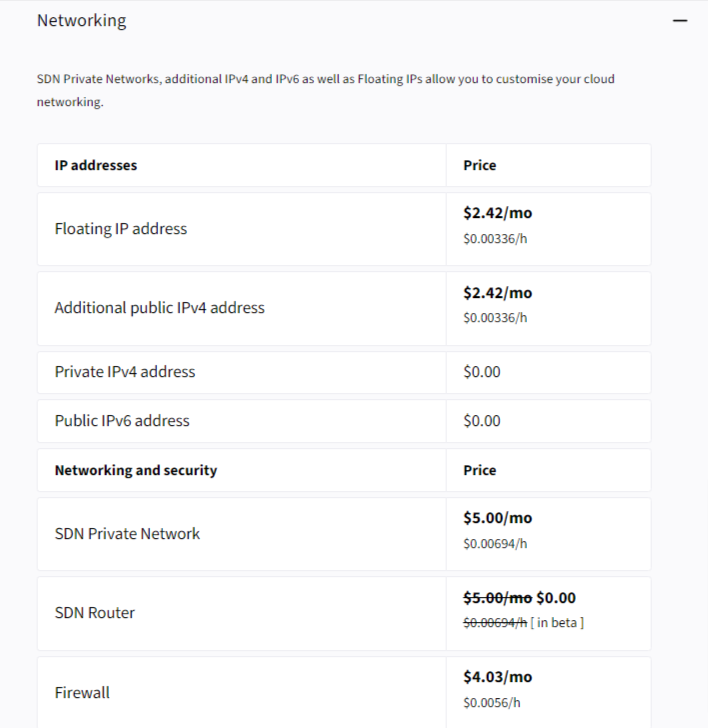
Regardless of the size of the website or blog, UpCloud is the best and fastest option to host it. In comparison to other cloud servers, its costs are reasonable and competitive. The best moment to get a quick and dependable cloud server is now.
Amazing customer service is offered by UpCloud. It consists of API documentation and in-depth tutorials in the community section.
If you add your ideas and solutions to the community section, you can gain a lot of account credits. Along with the documentation and training, the website also provides phone numbers, a live chat option, and an email address for correspondence.
Experts in customer service are on hand around-the-clock, and the typical response time is just two minutes.
How to deploy the server from UpCloud?
Deploying the server is much needed, especially when you want to upgrade and configure your system settings. How to do that? With Upcloud, all you have to do is follow a bunch of easy steps, and you are good to go.
So, let’s know how to deploy the server using UpCloud.
Start with signup or login
- Visit UpCloud’s website and signup on to its server.
- Once you are done filling in the details, you can now access server sections where we will do the work.
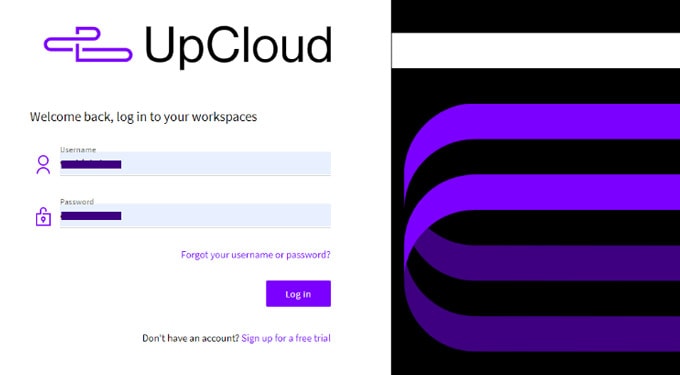
Select the server and deploy
As you go to your server settings, you will come across a purple button that will take you a step further. For all the new users, this button will be in the middle of the screen.
Configure the new UpCloud server
Once you click on the button, this will walk you through the process to help you enable the server location of your choice. Select the one from the USA, Europe, and Singapore. Your choice.
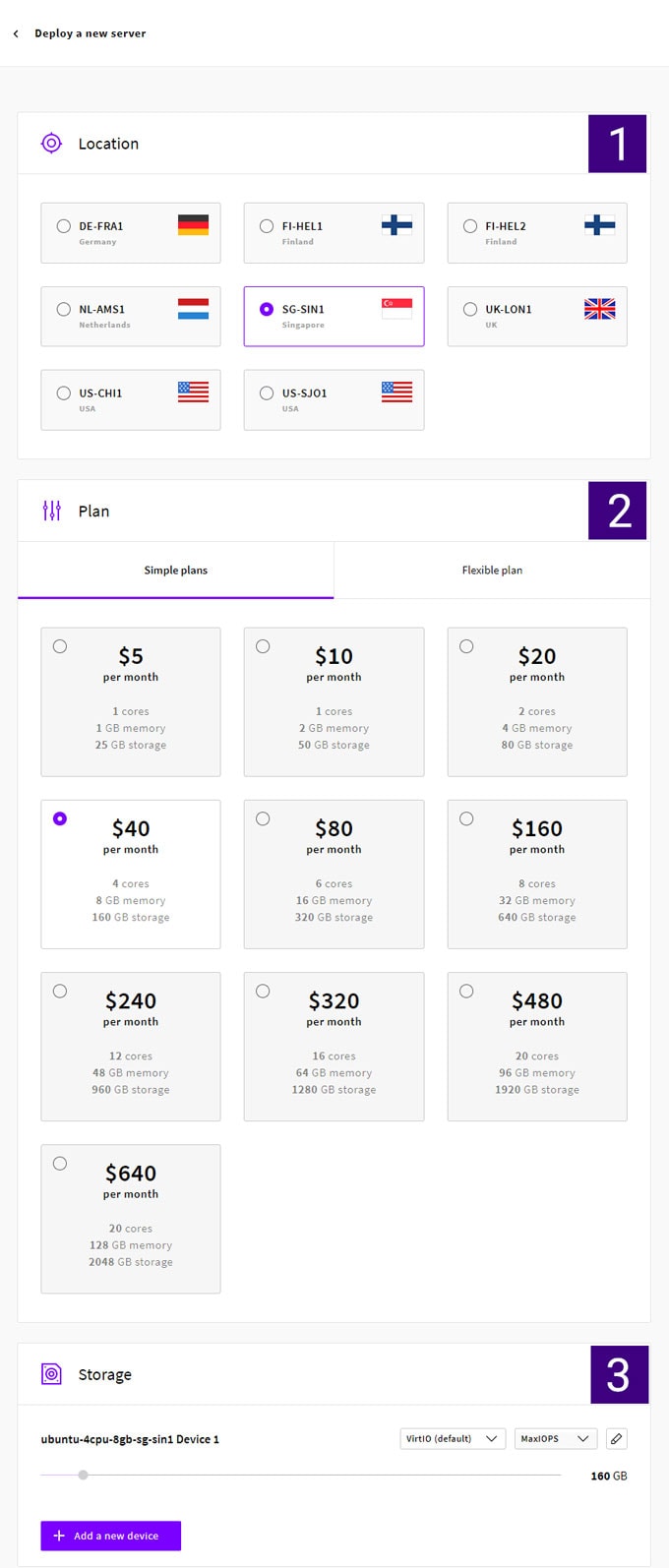
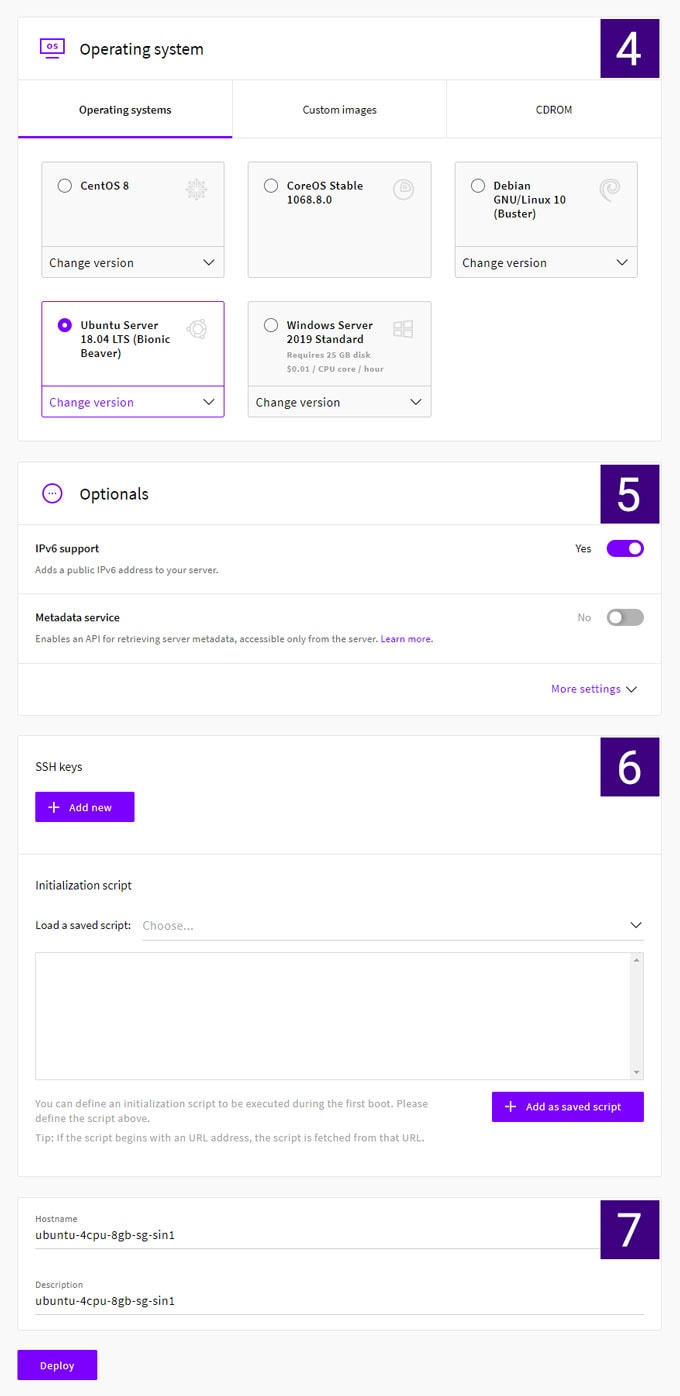 Server locations on UpCloud
Server locations on UpCloud
As the first step, select the data center that has the server you want to deploy. If you can’t find the specific one, go with the nearest that has the possible visitors for your website.
Pricing and Resources
After picking the ideal location, you may choose the features of the server. This might cost you between $5 to $640 a month for a few powerful server resources.
If they are properly maintained, the first five options are usually plenty for websites. Not just it, you can also choose to upgrade the system with some extra storage devices. Hosting multiple file systems or even large capacity repositories for the apps and websites is a smart idea. Not to mention, you have the option of using HDD storage or MaxOIP. The costs of the various options would differ.
Server storage?
While we are on the storage, keep in mind that only the storage drive’s name can be changed. Simply click on the pencil symbol ‘Edit’ to change the names of storage devices. You can, however, adjust the capacity of the mounted storage on your server if you opt to install with flexible pricing in step 2.
Select the Operating System
Moving on, you can select the server operating system that you want to install. This is the place where you can find all the common operating systems, including Ubuntu, CentOS, Debian, etc. Besides, a Windows Server is also available for setup. So, from the basic settings, you can choose the OS version.
If you want an alternative, follow this. You can select a configuration by choosing the CDROM tab. In case you want to, you can also select IPv6 support. Compared to CentOS and Debian, Ubuntu 18.04 LTS is always my OS of choice because it is reliable, powerful, and has sufficient online documentation.
Optional – Since IPv6 functionality is enabled in this section, there is really nothing you need to change.
Don’t forget the SSH Keys
SSH is a very important thing to have. You can have that from the drop-down menu that has many complex choices. To name a few, there are personal SSH keys, a password, or even both, how to communicate the root password (post-deployment), etc.
You can upload your public key from here and keep the private key on your computer to continue to access the server securely if you have already created your SSH keys on your computer (desktop or PC).
Name and details of the server.
In the end, you can decide if you want to modify the server’s hostname and provide a brief description that will be displayed on the UpCloud server dashboard.
Once you select Deploy, the UpCloud server deployment procedure begins.
When the server deployment process is active, you can see a tiny yellow dot on the server. A green light will appear when it is finished, and a notification will contain the server’s root password. You will also receive the password through email.
Once you have it, you can manually update the password. The server is deployed after some time, and you can use it. You can see your page when you look at your dashboard.
Ensure that only reliable individuals, not just anyone, are permitted access to the root user. All privileges to execute any command on your server are held by the root user.
How to use SSH for server accessibility?
Do you know you can access the newly deployed server after completing the aforementioned procedures? This is pretty great. Check this out. On either a MacO or a Linux-based computer, you can use the terminal to open a terminal window.
It will be difficult to use the Command Prompt or CMD if you have a Windows PC. Installing and configuring Putty is advised. In case you are using macOS, you can connect to your server using the command line without a third-party application.
The step is pretty simple. You need to open the Terminal App on your Mac and click on the Shell >> New Remote Connection

SSH access to the remote server is available as soon as the terminal window appears. For this, you must log in to the server as the root user using the password supplied to you via email or dashboard alerts.
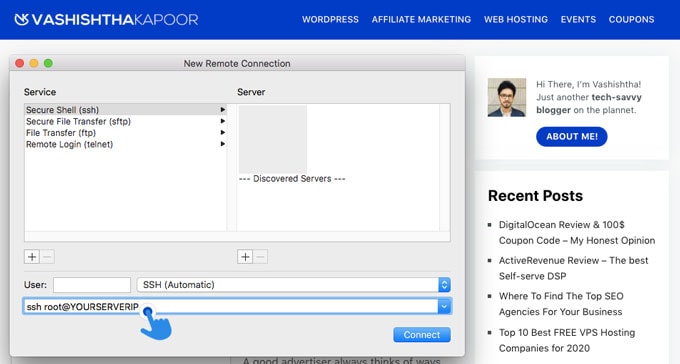
You will first get a message stating that you cannot determine the host’s validity. The reason being you are logging in it for the first time.
Thereafter, you will be prompted to continue the connection (you need to select yes).

Up next, you must enter your password. Once you log in successfully, you are all set to access the server and see a welcome message with information about the installation.
Keep in mind that the majority of Linux versions ship pre-installed with a plethora of useful programs, utilities, and applications.
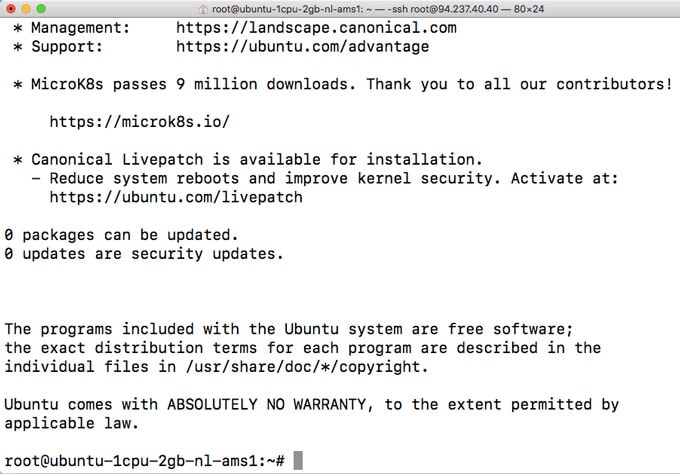
You can see that I have an SSH login, and probably now, you would be able to perform whatever on the server.
Whether you wish to install something, run a fast search using apt-get update to see if it already exists. Simply enter the command: exit to leave the remote server.
Setup Server package
The terminal interface can be used to access the server instances, which are set up as boxes. There isn’t a beautiful User Interface available by default that can be used to check for updates and other information. If you want to check out the updates, update commands can be periodically run; however, this is time-consuming and ineffective.
Installing Apticron is advised because there is no likelihood of being informed in the event that a significant security patch appears out of the blue. Users of CentOS and Red Hat may need to find a comparable solution since the Apticron application can only run on Debian or Ubuntu servers.
Install WordPress on UpCloud Server
WordPress is simple to set up on a VPS server. All you need is this guide, which lists all the SSH commands you’ll need, including some of the most popular SSH commands. Simply copy and paste commands one at a time, and then BOOM.
A fresh installation of WordPress on your server straight away. You can build your SEO-ready and quick-loading website on the best and fastest Cloud hosting on the planet by installing an SEO-friendly WordPress theme, making some simple customizations, and then publishing it.
Another fantastic option for hosting a WordPress website is “CyberPanel.” On UpCloud, I’ve created a comprehensive explanation of how to install Cyberpanel on an Ubuntu server.
Cloning UpCloud Server
A great technique to test modifications before implementing them on a live server is to clone the server. By doing this, you can help prevent potential issues that can arise if the changes are incompatible with the server.
It’s quite simple to create a clone; you only need to click the “Clone” option on your UpCloud Control Panel to get started. You can decide whether to copy your server’s complete contents or specific areas. You won’t have to wait long to test your modifications because the cloning procedure is fairly quick.
Cloning is undoubtedly a viable option if you’re unsure whether a change will work or if you want to be confident that it won’t result in any issues.
You can test modifications to your website without affecting your other sites if you clone the server hosting it and all the websites that operate on it.
Cloning is a crucial component of the extensive toolkit offered by UpCloud, which also includes the capacity to add, delete, and suspend users on your server. You can better control your server with all these capabilities to ensure that it operates at its peak efficiency.
Pros and Cons: UpCloud Review
Pros
- Promises a constant uptime
- 24/7 client assistance
- MaxIOPS storage and Fast Disk I/O speed are top-notch
- Amazing network performance
- Flexible pricing and reasonable prices
- Fastest response time for customer service
- An intuitive control panel
- Has a number of features that improve performance.
Cons
- For reinstalling and rebuilding, there is no OS selection
- You must have a credit card for payments.
- Finland servers are somewhat expensive.
Quick Links
- The Top Cloud Hosting infrastructure providers
- How to Host Unlimited Sites on UpCloud with CloudStick?
- Video – How to Buy a Cloud Server from UpCloud and Host websites?
FAQs about UpCloud
DigitalOcean and Vultr, is UpCloud better than these?
I am highly confident in UpCloud's performance as far as hosting numerous websites on a single server is concerned. When it comes to hosting applications, read and write tasks, and website speed, it outperforms DigitalOcean and Vultr by a wide margin.
Is UpCloud's speed up to the mark?
In a nutshell, UpCloud provides powerful servers. These servers are already set up to respond more quickly, which can help you increase the speed of your website.
Would you need RAM and CPU?
Consider my WordPress Speed optimization service if your website runs on the WordPress content management system if you want to increase speed. Once your website is optimized, the smallest server can accommodate about 200k visitors. The cheapest server only costs $5 a month.
Is there any offer for free migration with UpCloud?
Unfortunately, NO, you require a developer of your own to assist you with the migrations. However, if you need any assistance, speak with UpCloud support.
Any coupons suggested for UpCloud?
No discount codes are available from UpCloud. When you fill-up your account with $10, use the coupon code 3M623W to receive an additional $25 in credits. It is not a discount, but rather additional credits. However, hosting your website on UpCloud is a terrific method to get it off the ground.
Would I have to pay anything for powering off the server?
Absolutely yes. If the server is switched down but not totally removed from your account, you will still be charged for it.
For how long is the $25 credit valid?
As of right present, the credits defined have no such expiration date. However, you are able to deploy a server of any size with these credits. A $7/month server can be deployed and will operate continuously for five months.
Conclusion UpCloud review – Fast, flexible and reliable cloud
Without a doubt, the fastest and most dependable supplier at the moment is UpCloud. It offers exceptional services and above-average performance.
You may host your website or app bravely with UpCloud servers. The UpCloud servers are prepared for real-world tasks. It is regarded as the fastest cloud server in the world and provides quick and simple cloud migration.
A wonderful hosting company for small to medium-sized organizations is Upcloud. Any business seeking dependable web hosting services without breaking the bank will find them to offer exceptional uptime performance, first-rate customer care, and competitive price.
I strongly advise using Upcloud if you’re thinking about migrating your site there or just considering it!
